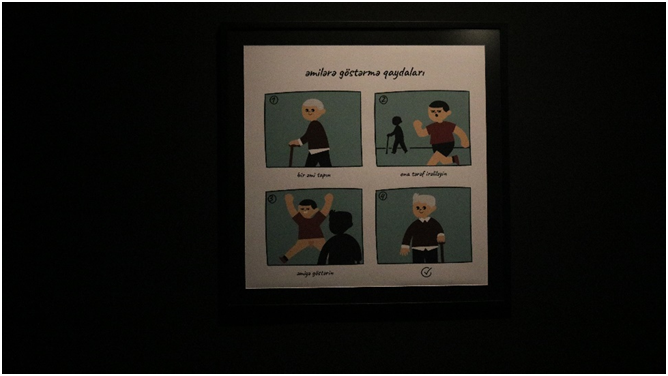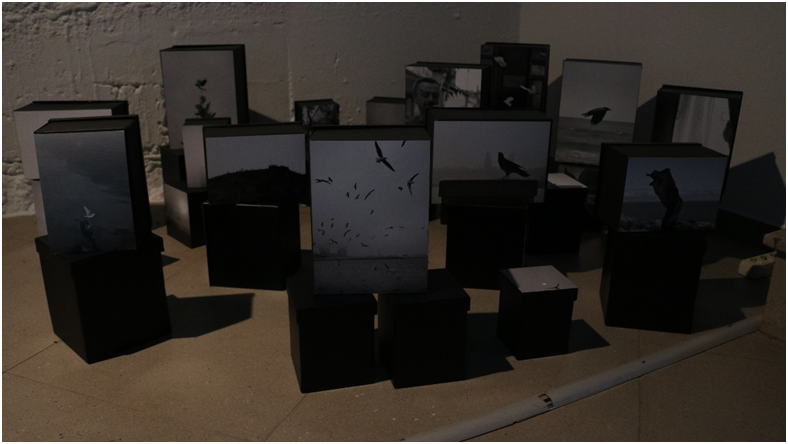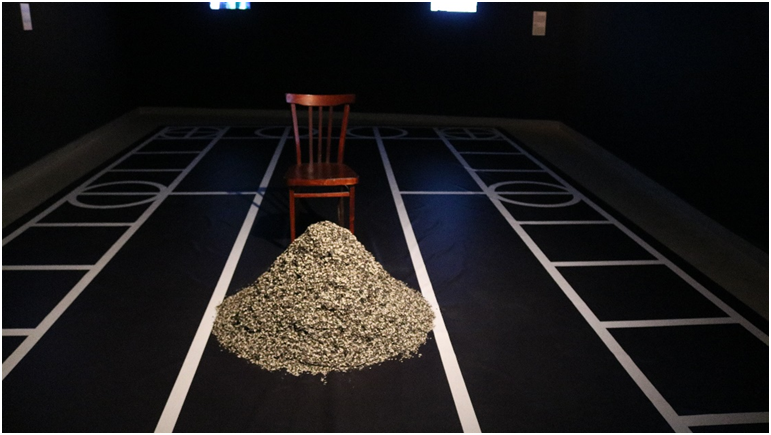
In the ever-evolving landscape of contemporary art, exhibitions often serve as a mirror reflecting the complexities of society and human experience. One such thought-provoking display is the recent exhibition titled "It Doesn't Make Sense," which delves into the intricacies of gender norms and societal constructs that shape our lives.
 Curated by Aynur Abutalibova, the exhibition emerged as a culmination of the Residency Program initiated by Yarat Contemporary Art Space and the School of Contemporary Art under the guidance of Sabina Shikhlinskaya. Over a span of six months, artists Fidan Nazimgizi and Agamali Aliyev engaged in a collaborative exploration of themes central to the human condition.
Curated by Aynur Abutalibova, the exhibition emerged as a culmination of the Residency Program initiated by Yarat Contemporary Art Space and the School of Contemporary Art under the guidance of Sabina Shikhlinskaya. Over a span of six months, artists Fidan Nazimgizi and Agamali Aliyev engaged in a collaborative exploration of themes central to the human condition.
Abutalibova provides insight into the genesis of the exhibition, recounting the intensive dialogue and idea exchange that characterized the residency period. Amidst this creative ferment, a shared vision emerged, crystallizing into the concept for "It Doesn't Make Sense." The curator underscores the thematic cohesion between Nazimgizi and Aliyev's works, noting their shared preoccupation with the impact of social constructs on individual identity.
 At the heart of the exhibition lies an interrogation of how societal norms shape our perceptions of gender and personal agency. Abutalibova observes that from a young age, individuals are indoctrinated with societal dictates, dictating their behavior and self-expression along predefined gender lines. This stifling conformity, she contends, obscures the nuances of human experience and stifles the pursuit of genuine freedom.
At the heart of the exhibition lies an interrogation of how societal norms shape our perceptions of gender and personal agency. Abutalibova observes that from a young age, individuals are indoctrinated with societal dictates, dictating their behavior and self-expression along predefined gender lines. This stifling conformity, she contends, obscures the nuances of human experience and stifles the pursuit of genuine freedom.
The works of Nazimgizi and Aliyev offer distinct yet complementary perspectives on this theme. Aliyev's approach is grounded in stark realism, offering a candid portrayal of societal expectations and their repercussions on individual lives. In contrast, Nazimgizi adopts a more poetic lens, exploring avenues of liberation and self-discovery within the confines of societal norms.
 Crucially, the exhibition refrains from prescribing a singular interpretation, instead inviting viewers to engage with the artworks on their own terms. Abutalibova emphasizes the importance of viewer agency, asserting that each observer possesses a unique perspective shaped by their lived experiences. By foregrounding viewer choice, the exhibition becomes a space for introspection and dialogue, challenging entrenched beliefs and encouraging critical reflection.
Crucially, the exhibition refrains from prescribing a singular interpretation, instead inviting viewers to engage with the artworks on their own terms. Abutalibova emphasizes the importance of viewer agency, asserting that each observer possesses a unique perspective shaped by their lived experiences. By foregrounding viewer choice, the exhibition becomes a space for introspection and dialogue, challenging entrenched beliefs and encouraging critical reflection.
In navigating the complexities of gender norms and societal expectations, "It Doesn't Make Sense" transcends mere critique, offering a nuanced exploration of human autonomy and the quest for authenticity. As visitors navigate the exhibition's diverse offerings, they are prompted to confront their own assumptions and biases, ultimately emerging with a deeper understanding of the multifaceted nature of identity and expression.













Leave a review